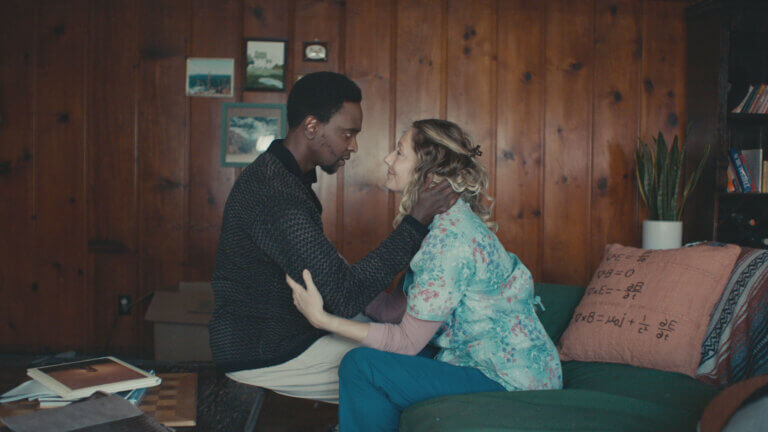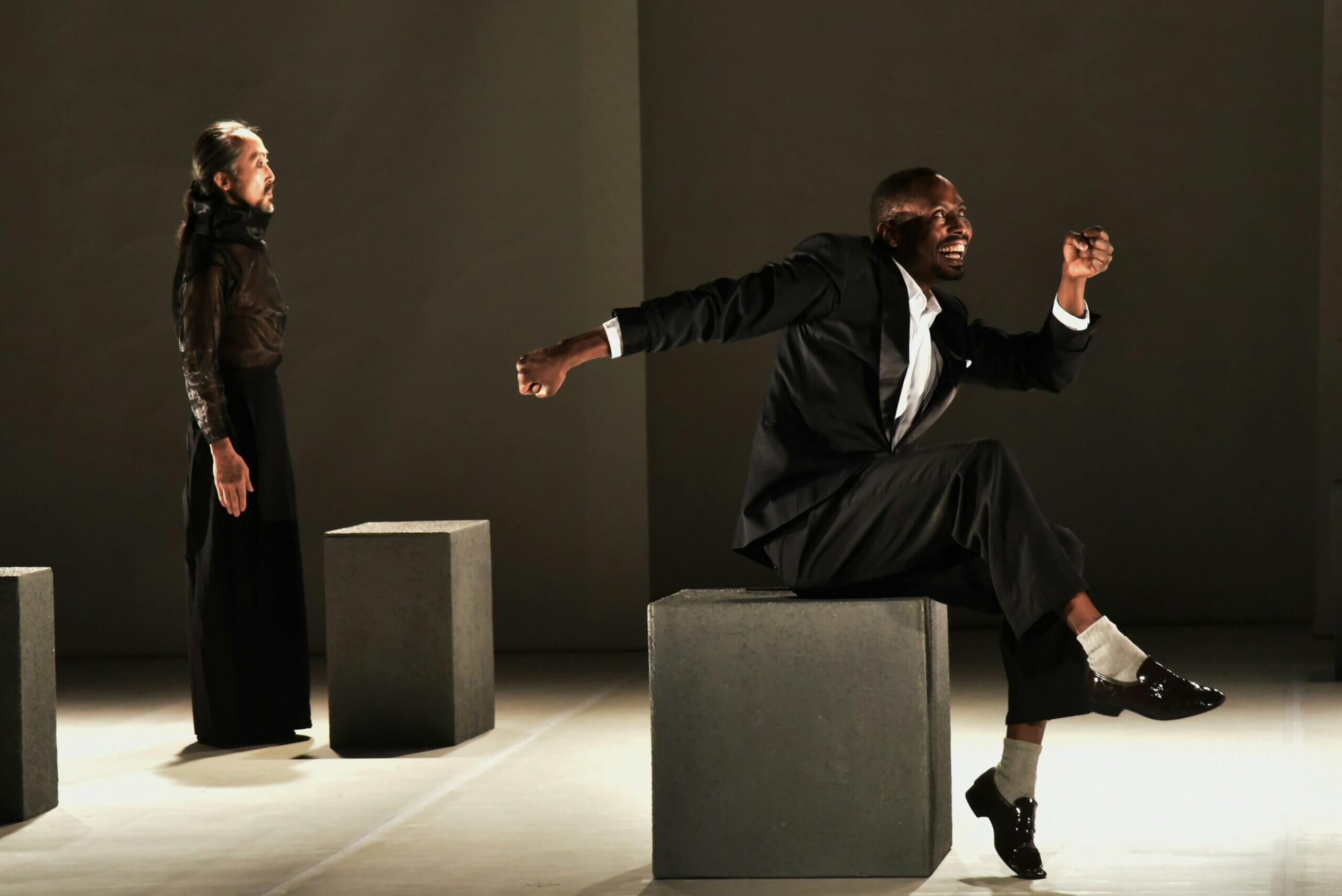On the Verge: Jared Moshé
You might not know the name Jared Moshé, but you will soon. The director of indie films Dead Man’s Burden and The Ballad of Lefty Brown, his third movie, the sci-fi drama Aporia hits theaters Friday, August 11. Starring Judy Greer, Edi Gathegi and Payman Maadi, the southern California-set indie tells the story of a grieving widow (Greer), whose physicist friend (Maadi) invents a time-bending machine that allows her a second chance at happiness. Soon, however, it will force her to make an impossible choice. The thought-provoking story is unlike any time travel movie you’ve seen before and will leave you thinking about it long after the closing credits roll. Moshé talked to us from his home in Los Angeles.
This is a different spin on the classic sci-fi time travel story. Where did the idea come from?
I originally had this random idea of a gun that can murder people in the past, and really didn’t know what to do with it. I’m not going to kill baby Hitler or something, I don’t want to see that movie. So I sort of put it away. Then I became a dad. Very suddenly the world became a lot more visceral, a lot more scary, and a lot more uncertain. As I was wrestling with that uncertainty, trying to figure out how to handle it, I remembered that gun that could murder things in the past, and I was like, “Okay, what if I come up with a story about a parent trying to regain control of her life in the face of uncertainty and uses this machine?” And it developed from there.
Judy Greer is an incredibly talented actress, but she doesn’t get the chance to carry a movie very often. What led you to cast her as Sophie, the grieving widow whose decision to work with her scientist friend sets the story in motion?
Yes, Judy is known for being a character actor, but I think part of the reason why she’s been so amazing at that is she is such an expressive actor. She shows so much on her face. When I was trying to think of who could bring Sophie to life, Judy came to mind because I needed an actor who could convey the maelstrom of emotions that Sophie is feeling in this movie.
I imagine the setting has something to do with it, too.
There’s a version of this movie that takes place in Beverly Hills with a bunch of rich, privileged people that have all the money in the world. Instead, this is a movie about the most powerful machine in the world that’s made out of junk and probably more likely to burn down a building than it is to work, that takes place in a neighborhood that you’re probably cutting through on your way to work. So I liked the idea of putting a character actor who was never the lead in a movie directly in front of a camera.
I think it’s a similar thing with Edi Gathegi, who is also not known for leading roles. Were Sophie and Mal always a mixed-race couple?
It was always important that it was an interracial marriage. I wanted to create the sense that they came from different worlds, had built a life together, and didn’t really have family connections outside of it. Once I had Judy, I needed to find someone who I thought could play off of her. One of the things I’ve always really loved about Edi as an actor is he’s a very cerebral person, but his body can be so still. He can express so much pathos and emotion with his eyes, with the smallest of movements or the smallest of choices. Her energy versus his stillness felt like the right dynamic.
 Photo courtesy of Jared Moshé.
Photo courtesy of Jared Moshé.Payman Maadi is not someone with whom I’m very familiar, but he gives an incredibly emotional performance as the couple’s scientist friend who designs and builds the machine.
Payman is basically the George Clooney of Iran. He’s a superstar over there. Most people know him from A Separation. I needed an actor who could almost live and breathe empathy. [Someone] who could go deep into himself and be someone who is both calculating and has made moral choices that we might not agree with, but we’re going to believe in them. We’re going to understand he’s doing it from a point of view that is very empathetic, that he’s both selfless and willing to make tough choices. Payman was just perfect for that.
There are three very specific roles for children in the film, none of which are huge parts, but all of which are absolutely pivotal to the story. What was the process like for casting them?
Luckily, I was working with some really incredible casting directors on this movie, Sunday Boling and Meg Mormon, who had worked with me on The Ballad of Lefty Brown, so they knew how I worked and what I looked for. I feel like one of their real talents as casting directors is finding kid actors. I got to actually do auditions with the kids, which I think is of incredible importance. When you’re working with children, their ability to take a note is probably one of the hardest things to see. Can they make changes and understand what I want? So Sunday and Meg, I don’t know how many people they actually went through, but all the kids I cast were in the first 20 they sent over to me.
As a director, what is your attitude and philosophy about the audition process?
I go in very open. I want to see an actor’s interpretation of a character. Then I’d say the most important thing is just how well they take notes and how well they collaborate with me. So if someone walks into an audition and knocks it out of the park, [and] gives me exactly what was in my head, I’m gonna give you a note to do something different because I want to see how well you adjust on the fly. Even if it’s totally wrong for what I’m actually going to end up doing on set, I just want to see how you adjust. I want to see how you work. That back and-forth between me and my actors, that’s where a movie lives or dies.
This interview has been edited and condensed.
Looking to get your big break? Sign up or login to Casting Networks and land your next acting role today!
You may also like:
- A Day in the Life of a Special Effects Artist
- Now Casting: Commercials for Disney, Wild Alaskan Company and More
- Casting Networks Success Story: Professional Laugher Dereck Andrade




